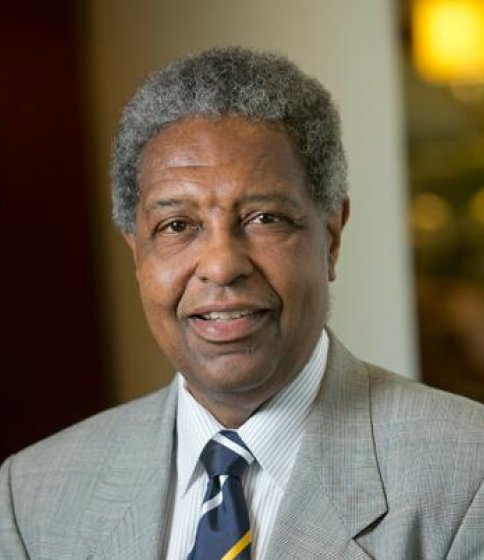
William A. (“Sandy”) Darity Jr.
Duke University, Sanford School of Public Policy
William A. (“Sandy”) Darity Jr. is the Samuel DuBois Cook Professor of Public Policy, African and African American Studies, and Economics and the director of the Samuel DuBois Cook Center on Social Equity at Duke University. Darity’s research focuses on inequality by race, class and ethnicity, schooling and the racial achievement gap, North-South theories of trade and development, skin shade and labor market outcomes, the economics of reparations, the Atlantic slave trade and the Industrial Revolution, the history of economics, and the social psychological effects of exposure to unemployment. In 2005, he launched the subspecialty of stratification economics. Darity is the 2022 W.E.B. Du Bois Fellow of the American Academy of Political and Social Science, aned he became a Fellow of the National Academy of Social Insurance in 2021. He received the Samuel Z. Westerfield Award from the National Economic Association in 2012. He and A. Kirsten Mullen are co-editors with Lucas Hubbard of The Black Reparations Project: A Handbook for Racial Justice (2023) and coauthors of From Here to Equality: Reparations for Black Americans in the Twenty-First Century (2020). From Here to Equality is the recipient of the inaugural 2021 book prize from the Association of African American Life and History, the 2021 Lillian Smith book prize, the 2021 American Book Fest award for Social Change, and the 2020 Ragan Old North State award for nonfiction from the North Carolina Literary and Historical Association. The Black Reparations Project is the recipient of the 2023 Phillis Wheatley Book Award in the Historical, Current Events, Nonfiction Category. He also coedited the 2022 publication, The Pandemic Divide: How COVID-19 Increased Inequality in America with Gwendolyn Wright and Lucas Hubbard.
-
Turning research into actionAmerica’s Racial Wealth Gap: Why It’s (Much) Larger Than We Think
The team at Duke University’s Samuel DuBois Cook Center on Social Equity undertook a meta-study to identify commonly held beliefs about racial wealth inequality in the United States. Why do so many of us get it wrong?
October 15, 2024
|P4A Spark
| -
Income and WealthUniversal, Indirect, or Direct: Assessing the Comparative Impact of Policies and Programs to Reduce the Racial Wealth Gap
While recently much attention has been given to the racial wealth gap, little systematic research exists on the relative effectiveness of proposals to eliminate the gap. Frequent claims regarding potential solutions have been made, including cancellation of student debt and “baby bonds” (a publicly funded child trust account).
June 1, 2023
|